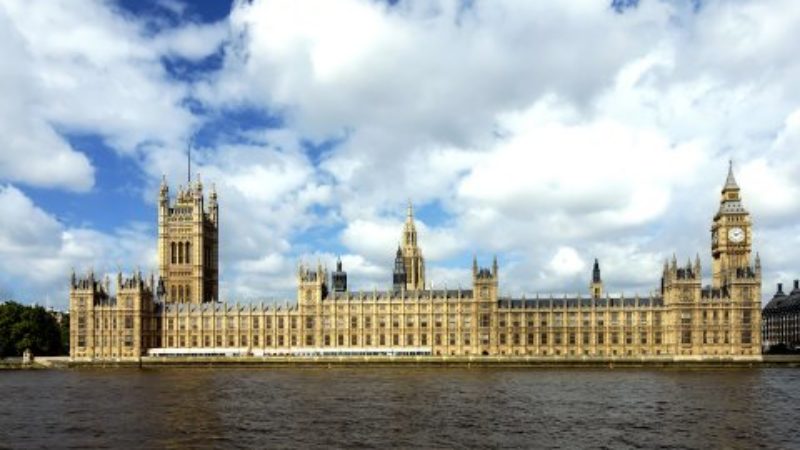

Peter Mandelson isn’t short of detractors. And since the Scottish referendum and the heating up of the English Votes for English Laws (EVEL) debate, it’s his answer to the West Lothian Question that has attracted the most ire: better not to ask it in the first place, the former Trade and Industry Secretary is supposed to have said.
We all know what he meant; after all, this is a difficult issue for Labour, with its 41 Scottish MPs, more than it is for the Conservative Party, with its… Scottish MP.
It all sounds so simple: Scottish MPs cannot vote on devolved matters affecting their own constituents, so why should they be allowed to vote on those issues as they affect the constituents of their English colleagues? Surely a straightforward answer is simply to restrict the voting rights of Scottish MPs so that they can only vote on matters reserved to Westminster? There you are! Job done!
Except, of course, that this proposal by right wing Tory MPs like John Redwood, is about as far from “straightforward” as it is possible to get. Almost every Bill before the Commons – even those which are, say, about the NHS in England only – still have either a direct or an indirect effect on Scotland.
What if Labour wins an overall majority at the next general election, but finds its Scottish contingent unable to participate in votes that only affect England? When it comes to English-only legislation, should Labour ministers swap sides in the Commons with their Conservative opposite numbers if the Tories, not Labour, have a majority in England? Yeah, that will end well…
And what about the Lords? Redwood et al think it’s perfectly okay for unelected Scottish Lords to have oversight of English-only legislation, but not democratically-elected Scottish MPs. And let’s not forget the West Belfast Question: for more than 50 years Northern Ireland had its own parliament and even its own Prime Minister, but continued, during that period, to send MPs to London to vote on matters that didn’t affect their own constituents. But as long as the Unionists took the Tory whip, they posed no constitutional quandary to the Tories at the time. Funny, that.
The inescapable fact, moreover, is that every single “straightforward” solution proposed so far threatens to bring chaos and uncertainty to the workings of the UK’s national parliament.
And yet it’s hard to avoid the glaring injustice of the status quo (that more powers are to be devolved to Holyrood in the next year actually makes little difference to the arguments for EVEL: this is a debate based on principle, not the balance of devolved v reserved functions).
A very simple and easy answer is right there in front of us, if English MPs want it. Those English colleagues genuinely concerned about the asymmetry of the constitution can seek, at any time, to provide an absolutely identical solution south of the border, in the shape of an English Parliament. If they were to choose to establish such a body, that is a matter for English MPs and their constituents alone.
But for what it’s worth, I don’t think one is needed (as I wrote in a guest post on the site of the Campaign for an English Parliament a few years ago).
English colleagues should consider the reasons why Scotland demanded a Scottish Parliament in the first place: it wasn’t for reasons of nationalism or national identity; it was because it was patently unfair that our contingent of MPs could easily be outvoted on any issue by even a small fraction of English MPs. England could never, ever be in the same position. Even if every Northern Irish, Welsh and Scottish MP wished to foist an unpopular policy on England, they could not do so unless they were joined by at least 209 English MPs. And the occasions when Scottish MPs have made the difference in policy areas affecting England have been so vanishingly rare, they hardly justify such a constitutional upheaval.
Nevertheless, an English Parliament – with, crucially, precisely the same powers and responsibilities given to the Scottish Parliament, with each constituency represented not only by an MP but also a Member of the English Parliament – is the only solution that addresses every concern on both sides of the debate.
EVEL would be a mess. It would create more problems than it would solve and would be constantly argued about and be subject to amendment.
So if English MPs really want to have the same status as their Scottish colleagues, they should go for it. But if they don’t, fine. But in that case, maybe they should stop banging on about it and then rest assured that the final, unequivocal answer to the West Lothian Question is there if ever they feel the need to resort to it.
Mandelson was wrong: the answer to the West Lothian Question is not to avoid asking it in the first place – it’s to give the full, honest and obvious answer. Maybe the likes of John Redwood will then regret asking it at all.




More from LabourList
Nudification apps facilitate digital sexual assault – and they should be banned
Diane Abbott suspended from Labour after defending racism comments
Labour campaign groups join forces to call for reinstatement of MPs